
Straits Chinese Silver Enamel Container with Khmer inscription
Straits Chinese Silver Enamel Container with Khmer inscription
Bangkok, Thailand, circa 1890s
Rui Sheng mark with Khmer Inscription
8.3cm high, 17.5cm diameter
628 grams
Provenance: Private European Collection since 1920s
Stock no.: A4875
Straits Chinese Silver Enamel Container with Khmer inscription
The circular silver box and lid, executed in repoussé, is painted with green and blue cloisonné enamels. The top lid depicts a central bull on a grassy bank with a single bent bamboo branch on a green enamel ground. The bull is enclosed by a silver beaded border, outside of which are five dragons represented amongst clouds pursuing two flaming pearls on a blue enamel ground. The outer border of the lid is depicted with scrolls of peony flowers and vines on a green ground. The sides of the box are decorated profusely with flowering prunus trees and birds. The fully-blossomed tree branches bear prunus buds and flowers. The base of the box has two Chinese marks and a carved inscription in Khmer.
The two stamped marks on the base of this box are those of Rui Sheng 瑞生, a Chinese silversmith working in Bangkok, Thailand. Silver and gold boxes and accoutrements (i.e. sireh sets, bolster ends, tobacco boxes, etc.) with carved decorations were made in large quantities in Thailand, Singapore and the Malaya regions by Chinese craftsmen for the local community. However, boxes of this type and period with blue and green enameled decoration are rare. The Khmer inscriptions next to the Chinese maker’s mark reads: deb chlāk dhṅan 16/6 ទេពឆ្លាកធ្ងន ១៦/៦ (Modern Khmer ទើបឆ្លាក់ធ្ងន់ ១៦/៦ döp chlāk' dhṅan' 16/6). The first Khmer word 'deb' can most likely be interpreted as ‘just’, in reference to time, so the later and full inscription translates to: “[this box was] just carved [and] weighs 16 [silver measure 1] and 6 [silver measure 2].” This unusual box was either commissioned for or later inscribed by a Khmer patron. At a later stage, this box was owned by a European collector who acquired it while was working in Vietnam around 1910. In the 1920s, the box was brought from Vietnam to Europe.
Literature:
Meng, Ho Wing. Straights Chinese Silver: A Collectors Guide, Times Editions Pte Ltd, Singapore, 1984.
@AMIRMOHTASHEMI




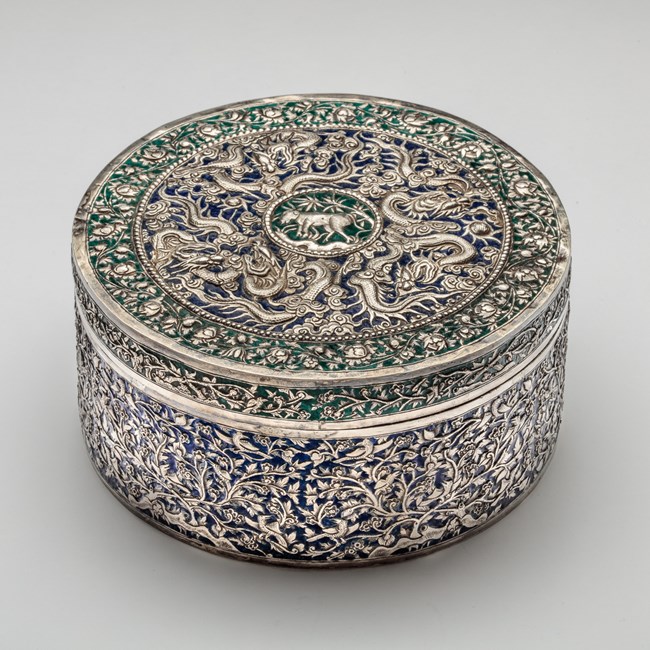
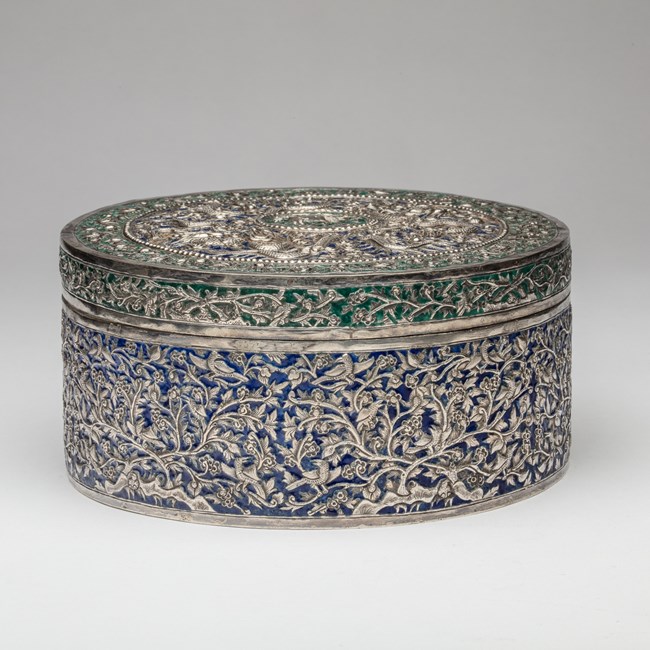
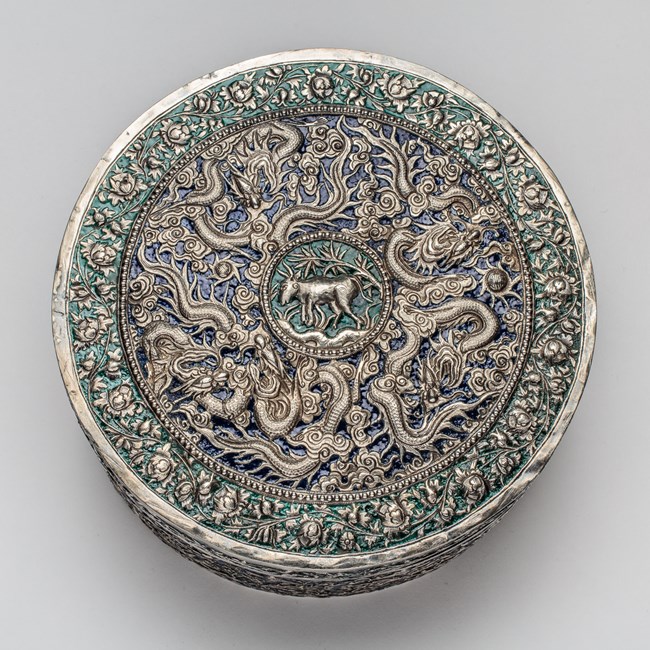
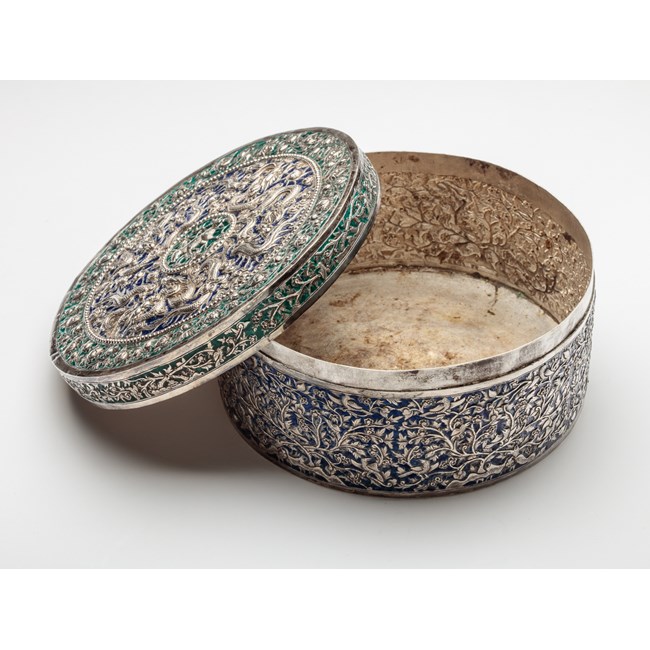
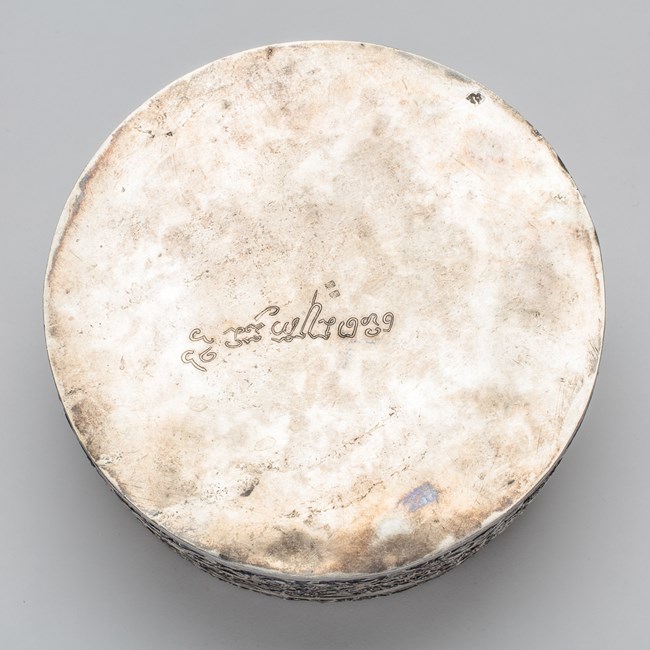
 instagram
instagram
